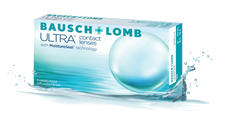
It starts off like any other morning—you step outside, ready to take on the day, and within minutes, your eyes are itching, watering, and turning red. By the time you get to work or drop off the kids at school, you're blinking through a blur and trying not to rub your eyes raw. For many people in New Boston, this is a regular part of allergy season.
At New Boston Vision Center, we often see patients who assume these symptoms are something they just have to deal with. But there are ways to manage eye allergies and protect your vision, especially when they interfere with daily life. A routine eye exam can help identify whether allergies are the issue or if something else is affecting your eyes.
Common Eye Allergy Symptoms
Seasonal allergies can trigger a range of eye symptoms that make daily life uncomfortable. Here are the most common signs that your eyes might be reacting to allergens:
Itchy Eyes
Itching is one of the most common and persistent symptoms of eye allergies (allergic conjunctivitis). It can range from mild irritation to a strong urge to rub the eyes. Rubbing may worsen inflammation or bring in more allergens.
Redness
Allergic reactions can widen the blood vessels in the conjunctiva (the clear tissue over the white part of the eye). This leads to noticeable redness.
Watery Eyes
Excessive tearing is a reflex response to irritation. Although it may seem like your eyes are overproducing moisture, this tearing often doesn’t provide relief and can contribute to ongoing discomfort.
Swollen Eyelids
Inflammation from allergic reactions may cause the eyelids to swell. This puffiness can make the eyes feel heavy or obstruct peripheral vision in more severe cases.
Burning or Stinging
A burning, stinging, or gritty feeling can show irritation of the eye surface. This often happens when the eyes are exposed to allergens in the air.
Sensitivity to Light
Also known as photophobia, this symptom may arise when the eyes are inflamed or overstimulated. It can make everyday activities like reading, using digital devices, or driving more difficult.
What Triggers Eye Allergies?
Eye allergies can be triggered by a mix of environmental and indoor factors. In New Boston, the most common culprits we see include:
- Pollen: From grass, trees, and weeds—especially during spring and fall.
- Dust Mites: These little guys thrive in bedding and carpets.
- Pet Dander: Even if your pet is short-haired, their dander can still stir things up.
- Mold Spores: Humid environments and older buildings can harbor mold.
- Smoke & Pollution: Irritants in the air can quickly inflame sensitive eyes.
- Fragrances: Perfumes, candles, and even cleaning products can sometimes trigger symptoms.
6 Ways to Care for Your Eyes During Allergy Season
Managing eye allergies often comes down to a combination of prevention and relief. A few simple steps can go a long way in protecting your eyes from allergens and reducing symptoms when they flare up. Here are some practical ways to take care of your eyes during allergy season:
- Limit Allergen Exposure
Keep windows closed on high pollen days and consider using an air purifier indoors. After spending time outside, wash your hands, face, and eyelids to remove any lingering allergens. - Use Artificial Tears
Over-the-counter lubricating eye drops can help rinse allergens off the ocular surface and relieve dryness. We are happy to recommend options based on your symptoms. - Apply a Cold Compress
Placing a clean, cold compress over your closed eyes can help reduce inflammation, ease itching, and provide quick comfort. - Avoid Rubbing Your Eyes
While it might offer temporary relief, rubbing your eyes can actually make symptoms worse and increase irritation. - Wear Sunglasses Outdoors
Sunglasses provide a physical barrier that helps shield your eyes from pollen, dust, and wind when you are outside. - Schedule a Professional Eye Exam
If symptoms continue or get worse, an exam can check for other issues. It can also help you find the best treatments for your eyes.
Find Real Relief from Eye Allergies in New Boston
If allergy season has your eyes feeling irritated, watery, and just plain tired, we are here to help. At New Boston Vision Center, we take the time to understand what is going on and recommend real solutions that fit into your life.
Whether it is through personalized treatment plans or a helpful discussion during your visit, we are all about making your eyes feel better—without the guesswork. Book your eye exam with us and we'll get you back to seeing and feeling your best.




